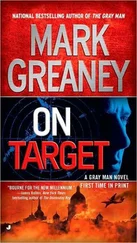“Needless to say, the U.S. government needs this procedural vote to pass. Without it, the conduits to North Korea’s trade remain in place and they get closer and closer to buying the material and expertise they need to build the missiles they want.”
Clark asked, “If it’s just a pro forma–type vote, what’s the concern?”
“Wayne Duke Sharps is the concern. Mary Pat has heard rumors that employees from Sharps Global Intelligence Partners have been walking the halls in the United Nations, trying to get meetings between Sharps and the nine members of the Sanctions Committee.”
“Influence peddling?”
“No question about it. Foley can keep Sharps himself away from the UN people, at least during their official duties. But Sharps Partners has agents all over Manhattan. She is concerned Sharps will find a way to get to these men and women, and either buy their votes or affect the outcome in some way.”
Ding said, “So . . . this damn well indicates Sharps is working for the North Koreans, right?”
“Just like in Vietnam, his organization clearly is working in the interests of the North Koreans, but there is no evidence he is working for them directly. It is crucial you find exactly what Sharps and his minions are up to. But there is something more important than that. If we can find out he is working for North Korea, in any direct way whatsoever, we can have him shut down ASAP. It is treasonous to work for a foreign power.”
Sam Driscoll said, “Why doesn’t Foley just contact the FBI? They could watch over them.”
Gerry said, “The problem with Sharps’s operation always has been that they have their fingers so far in the cookie jar at FBI and CIA, they are stocked with former employees and people who are still in contact with those in the government, that there is no way the FBI can get close enough to Sharps’s operation to catch him red-handed. They’ve only got a week and a half before the vote, so they will be running around going after the committee members. They’ll have to take risks to get this done, and this creates an opportunity for you.”
After that call, Clark refined his hunt for Sharps’s operators, and within hours they were tracking Edward Riley through New York as he met with United Nations Sanctions Committee leadership. It didn’t take them any time at all to realize what was going on.
Sam’s photos of the man leaving the massage parlor in the rain were brought up on the computer. No facial-recognition software was required. There were only nine people, seven men and two women, on the Sanctions Committee, and this photo was clearly Hans Tischer, a forty-one-year-old Austrian and career UN employee at One Dag Hammarskjöld Plaza in Manhattan’s Turtle Bay.
Clark said, “Edward Riley is Sharps’s second-in-command, and he seems to be spearheading things as a director of operations. The rules vote next week is their objective. They are trying to affect the delegates on board, to get them to vote no on drafting another round of economic sanctions.”
Sam said, “We can nip this in the bud. Just let it slip to the press what Sharps is up to. That gets out and he’ll have to stop.”
Clark said, “I considered that, but the problem is, Sharps is the devil we know. There are other unscrupulous private intelligence firms in the U.S., plus there are similar companies in other countries who could operate here and stay below our radar. And above all, interested nations could do the same thing. I have no doubt the DPRK is running agents here in the city. They could be tasked with targeting the Sanctions Committee membership, and we’ll have no insight to what’s going on.
“No. We can’t tip our hand. If Sharps finds out his op is under surveillance, we will lose all the potential leverage we have in finding out how big this goes. We won’t blow Sharps unless we can prove he’s working for the North Koreans. That would put him in prison for treason.” Clark gave a sly smile. “And that couldn’t happen to a nicer guy.”
Ding said, “So we keep following him. If he meets with North Koreans we hit the jackpot, but if we know who he’s compromised, like this Austrian guy he just busted in the massage parlor, we can push back on them quietly, to try and pressure their vote.”
Sam had kicked off his shoes, and now he rubbed his calves. He’d been on nearly constant foot-follow surveillance for several days. “I guess we’d better get back out there. He’s in his office now, but he usually leaves around four.”
Clark stood. “No, Sam. You and Domingo stay here. It’s my turn at bat. Good news, though, Dom will be here in a couple hours to give us another pair of eyes in the hunt.”
31
Lieutenant General Ri was not one to micromanage his operations. At present he had more than one hundred different schemes and plans in motion around the globe, and they were most all being run effectively—some more effectively than others—by his subordinates.
Counterfeiting operations, drug-smuggling operations, weapons transfers to Syria and Iraq and East Africa, and weapons purchases from Iran and Pakistan. Kidnappings in Japan and in South Korea.
And Fire Axe, the assassination of the President of the United States, in Mexico.
He couldn’t involve himself any more in Fire Axe, for the sake of deniability, but of all the other operations, the New World Metals operation was different, and therefore it required his full attention and scrutiny. As far as Ri was concerned, the Dae Wonsu himself had gone so far as to threaten him with violent death if he did not attain the ICBM, he had two years left to do so, and Ri saw no possible way this would happen without the success of New World Metals and the Chongju mine.
So he kept an eye on every last aspect of the mission. Even though Ri and his RGB did not hire Duke Sharps directly, the North Korean lieutenant general knew all about the American man and his part in the plan. He knew the importance of the procedural vote in the United Nations, and he had been watching Sharps work via reports he received from Óscar Roblas.
Ri felt Sharps was doing an excellent job with his coercion operation, and under any other circumstances he would have simply allowed his American proxy force in New York City to continue on, but he knew how utterly important the success of Sharps and his operation was to Ri’s own personal fortune.
And two days earlier something had happened in Prague which further affected the equation. A team of RGB men had been looking for a low-ranking consular affairs officer who had helped them with some documentation they had needed to get foreign expertise into Chongju. Ri had not been micromanaging this situation, but he was, of course, aware of the “underground railroad” of scientists coming in to work at Chongju from nations that would not have permitted their travel. Ri had not even been aware the Czech consular official had disappeared, but, according to the report he read this morning, the man turned up back at his apartment in Prague, along with two Americans. The North Koreans moved in, a rush decision to eliminate the consular official was made because he was in the process of revealing aspects of the North Korean operation, and according to the surviving agents, the Americans had been ready to repel force with force of their own.
Four North Koreans, three from Ri’s own RGB, had died in a gunfight.
Lieutenant General Ri had been deeply distressed by this incident because he did not know who the Americans were, what they knew about his operation or his plans, or what they would do next. He immediately thought of Sharps in New York City and how incredibly crucial a good result in the United Nations would be to New World Metals’ continued transfer of the money he needed.
Читать дальше












